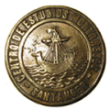He past 12 He died March, to the 87 years old, Francisco Rado Varela, that Following family tradition he had practiced the profession of journalist. Rado he worked all his life in the newspaper Alerta, who came to lead among 1979 and 1980. He also directed the Santander station from Spanish National Radio, since 1983 until his retirement in 1992, and presided the Cantabria Press Association for four years, in between 1975 and 1979. This association awarded him the José Estrañi award in 2007, in a decision taken unanimously by the jury. During his speech at the delivery ceremony of the awards, He highlighted how excited he was to receive an award he was wearing. the name of who he was a friend of his grandfather, also journalist Eduardo Rado Gomez.
With Due to his death, his heirs have donated the funds from his library to the “Saiz Viadero” Public Library, from Penilla de Toranzo, but among those funds there were some documents more typical of an archive. A file, in which they were kept, but also available to researchers, so they have been deposited in the Study Center Highlanders.
Precisely this year 2019, on which the centenary of the death of José Estrañi is celebrated, The CEM has opened a section on its website in memory of the distinguished journalist, what was, among other things, director El Cantábrico and first president of the Press Association of Cantabria.
The documents that have been received at the CEM are:
– Condolence letter from José Estrañi to Eduardo Rado, for the death of his son Eduardo Rado Carrera, who died on 28 of October of 1917.
– Copy of El Cantábrico of the day 29 October 1917, in which the obituary of Eduardo Rado Carrera appears.
– Condolence letter from José Estrañi to Eduardo Rado, for the death of his grandson Eduardo Rado San Segundo, who died he 3 December 1919.
– Letter from lawyer Alonso Gullón and García Prieto to Eduardo Rado who was accompanied with an article for its publication in El Pueblo Cántabro, that is not preserved.
– Typescript of a novel, without qualification, of 96 folios.
The recipient of these letters was journalist Eduardo Rado Gómez, of Catalan origin, but born in Santander in 1870 and died in the same city in 1939. He was a typographer by profession and, as It was common among those in his profession, a person committed to those of his class and with strongly rooted principles that led him to be a manager of the Santanderina Socialist Association, of the Center for Comprehensive Education and Lay and the Workers' Center, as well as one of the founders of his Cadre Artistic and the first president of the Local Federation of Workers' Societies.
In the municipal elections of 1903 the Socialist Group presented two candidates, Eduardo Rado and Macario Rivero, that they did not achieve their goal, but yes six years later, in joint republican-socialist candidacy achieving be, in 1909, the first socialist councilors of the Santander City Council.
Toward At the end of the legislature they had serious differences with the Group Socialist and were expelled. He did not fight again in the political arena and although He always remained close to the PSOE organizations, I wouldn't go back join, something that Macario Rivero did, future first mayor of the II Republic.
Rado entered El Cantábrico as typographer, probably at the time of its founding in 1895. In that newspaper would go through the entire scale of jobs, In addition to being a typographer, he was proofreader and editor. He probably became Editor-in-Chief., after a march temporary to El Pueblo Cántabro, when appeared in 1914. In addition to dedicating itself to general information, published sports chronicle with the pseudonym "Paco Montaner".
He knew combine the dual status of councilor and journalist during the four years that he was as a councilor. As an example, his presence at the Georgist Congress Hispanoamericano that was held in Ronda in May 1913, which he attended as a delegate of the Santander City Council and which he promptly reported, as correspondent of El Cantábrico.
Was also one of the founders of the Cantabria Press Association, in the that he would hold positions on the board on several occasions throughout his life.
After the fall of Santander, Spanish Falange seized the facilities of El Cantábrico, where did you start publishing Alerta, in which Eduardo Rado was able to continue working, as a proofreader, until his death on 6 October 1939.


Views: 591

